Pallavi Aiyar’s new book, Punjabi Parmesan (Penguin India, December 2013) is an account of contemporary Europe seen through Asian eyes. The project is ambitious, timely and important, and I cannot think of anyone who is better equipped to undertake it than Pallavi Aiyar.
Born, raised and schooled in India, Pallavi also has a degree from Oxford. She lived in China for many years, reporting for the Hindu, and speaks Mandarin. Her first book Smoke and Mirrors was about her time in that country. A fine blend of memoir and straightforward reporting, the book is woven around an account of the time Pallavi spent living in a hutong in Beijing, with her Spanish husband, Julio Arias. It is to my mind among the best of the slew of recent books about China – a compelling blend of autobiography, social history and journalism.
I should add here that my personal acquaintance with Pallavi is very brief. I met her at a book event some years years ago, soon after I’d read Smoke and Mirrors. I told her how much I had liked the book, which is why, I suppose, she sent me the proofs of Punjabi Parmesan
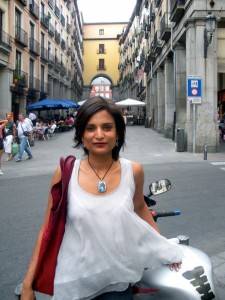
(later, when I decided to write about it, I asked for some pictures and she sent the photographs that are posted here).
Punjabi Parmesan (and I must note here that the title is one of the few things I didn’t like about the book) could be described as the second volume of Pallavi’s ongoing journalistic autobiography. In this book we follow her from Beijing to Brussels where her husband Julio has taken a job in the offices of the European Commission.
The move, undertaken for family reasons, brings about a sea change in Pallavi’s journalistic career: ‘For years I’d had front row seats to the volcanic awakening of this Asian colossus [China], the consequences of which were leading to an epochal inversion of world power… Indian newspapers had developed a Chinese obsession, alternatively adulating and vilifying the country. This had worked to my advantage as a journalist, as almost every story I filed from Beijing was prominently showcased. Europe, on the other hand, barely registered a bleep on the Indian media’s radar… I was resigned to the fact that I’d be lucky if my dispatches from Brussels made it to the newspaper at all. … I consoled myself with philosophical reflections on my stage of life. I was, after all, no longer a footloose youngster, guzzling sea slugs with ne’er a care. I had a baby now, and planned on more. Adventure for me had become equated with the contents of a diaper. Perhaps pretty, stable, pleasant Europe was exactly what I needed.’
But of course nothing ever works out as expected. ‘The ‘story’ found a way of chasing me. The timing of my move, in 2009, was such that before long I was once again in the eye of a news maelstrom. From the “Rise of China,” I now found myself with front row seats to the “Decline of Europe”. In some ways, of course, the two were the flip side of the same coin.’
The way Pallavi frames her project is characteristic, both in its modesty and its sly subversiveness. Her family and her children are placed at the very centre of the narrative and she makes no bones about subordinating her career to her husband’s: but far from constraining her, these choices lead to the discovery of an exciting new project, one that becomes all the richer because she approaches it not just as a journalist and writer but also as a mother and spouse.
The confounding of expectations is a recurrent and refreshing theme in Pallavi’s narrative. Europe turns out to be rather different from the ‘pretty, stable, pleasant’ place that she had expected. Arriving in Brussels airport is a bureaucratic disaster; within minutes of stepping out of the airport the family is robbed of a large part of their possessions.
Expectations of ease and comfort in Europe are confounded in other ways too: ‘Efficiency, reliability, quality, cleanliness: these words had echoed in my head, taking on an almost hallucinatory allure as our plane prepared for landing in Brussels on a late April’s day.’ But, in the event: ‘It took me a day to get a phone connection installed in Beijing, but several weeks to get one in Brussels. It took me five days to get my residence card in China when I moved there back in 2002, compared to nine weeks for the equivalent in Brussels.’
The plot thickens as Pallavi and her family learn to cope with the Great European Vacation. ‘We began our European lives just as continental Europe was gearing up for what the Belgians (or at least the French-speaking amongst them) called ‘Les Grand Vacances’. This was a staggeringly long period between July and August when large parts of the continent, and certainly Brussels, came to a halt, with everyone from EU civil servants to primary school teachers heading off on a grand vacation, clasping suntan lotion and beach towels. (11) ‘I was increasingly convinced of the religious overtones to vacations in Belgium, where many seemed to hold holidays as the raison d’être for work, and even life itself.’ (12)
Imagine, then, my disorientation in having landed from China in Brussels, a city that not only shut shop for les grand vacances but every Sunday as well. When I tried to impress people by telling them how China was pretty much open for business twenty-four hours a day, seven days a week, they would shake their head sadly, exclaiming, ‘Yes, isn’t it terrible?!’ Not quite the reaction I was hoping for. (13)
This leads Pallavi to ask some searching questions about the contemporary European work ethic. She seeks out Baron Dilip Mehta, a hugely successful Gujarati diamond merchant, now based in Antwerp. The Baron minces no words; according to him the key ingredient in the success of Indians in the diamond industry is ‘a willingness to work harder and longer hours than the competition.’
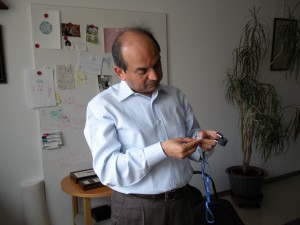
This, he says, is how Gujaratis came to displace the Jews who had previously dominated this industry.
‘‘[They] just couldn’t withstand our competitiveness,’ he said with a matter-of-fact shrug of the shoulders. ‘We are married to our businesses. We will work at night. We will work on the weekends. We will do whatever it takes to get a client. And we are willing to work this hard even for small margins.’
The baron sighed. ‘Of course, sometimes I feel guilty that I’m such a company-driven person. My family always comes second to the business. But that’s just the way it is.’ (29)
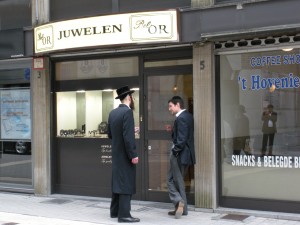
Pallavi then interviews a Jewish diamond merchant, who essentially confirms the Baron’s diagnosis:
‘The Indians work too hard,’ he spat. It was the first time I’d ever heard ‘work’ made to sound like a dirty word. ‘That’s all they talk about, “diamonds”. It’s their life and they won’t stop at anything to grab customers. Even if it means selling at a loss.’ (32)
The irony, as Pallavi points out is that ‘[These] allegations … against the Indians—the ‘unfair’ competition they posed because of their willingness to work too hard and their desire to ‘grab’ business at any cost—are charges that have been levelled time and again, over centuries, against the Jews themselves.’ (34)
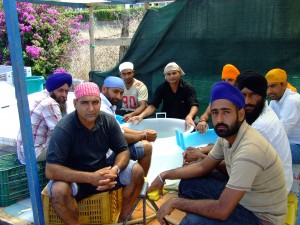
Pallavi hears a similar story in Italy where ‘Punjabi agricultural immigrants … constitute the second largest Indian diaspora in Europe, after the UK’.
‘‘Italians don’t like to work too much,’ said Sartaj Singh,
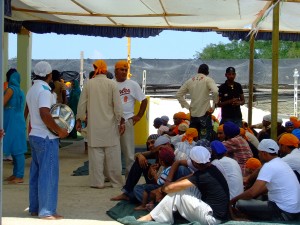
a clean-shaven Sikh who was working alongside Harbhajan on the day. ‘They keep going on holiday and make life difficult for the bosses.’
He lowered his voice even though we were talking in Punjabi, and indicated Angelino, his overseer, with a quick sideways motion. ‘He never gets to work before 10 in the morning, even though we start at dawn.’
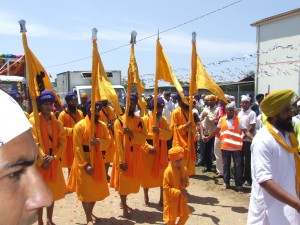
‘Before we (Punjabis) got here, the fields were barren,’ chipped in Harbhajan.
‘There was no one to work in the fields. If there is agriculture in Latina today, it’s all because of us,’ he beamed.’
Pallavi goes to Rome to interview a First Secretary in the Indian embassy.
He tells her: ‘‘You know, Italians don’t like to work in the fields … Italy needed labour and since the late 1980s Indians have been providing it. It’s worked well because they [the Italians] see the Indians as reliable, enterprising and quite docile. They work hard and don’t demand things like some of these others . . .’ the First Secretary left the rest of the sentence dangling complicitly between us.’
The words ‘docile’ and ‘reliable’ leapt out at me: it was astonishing to see this 21st century Indian diplomat using the exact words that British colonial officials liked to use to describe Indian indentured workers in the 19th century.
I was reminded also of another set of words that occurs often in European writings of the 19th and early 20th centuries: ‘the lazy native’. Colonial officials of that period concocted all kinds of theories about what they saw as the laziness and profligacy of Asians and Africans. These notions were of course bitterly resented and the Malaysian politician and thinker, Syed Hussein Alatas, even devoted a whole book to the subject: The Myth of the Lazy Native.
Can we soon expect a screed with a title like The Myth of the Lazy European /First Worlder? To judge by the furore that greeted Ratan Tata’s comments on the British workforce, it would certainly seem so.
Sometimes the wheel of history turns very fast.
____________________________________________________
All pictures courtesy Pallavi Aiyar

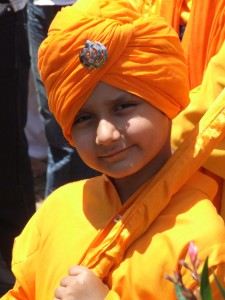
I could not help think of The Glass Palace where you have written about how the Britishers gave up their young lives working hard to build the plantations and to harvest the teak from Burmese forests. They were laying the foundations of an empire. Natives were looked down as lazy with inferior work ethics. The tables have turned now. While Gujrati diamond merchants in Brussels, Sikh farm hands in Italy and software workers in Bangalore and Chinese works in shop floors sweat out day or night, the decadent Europeans frolic with their suntan lotions and beer mugs in resorts British pubs. This is probably how civilizations evolve. And empires decline or emerge.
I picked up Punjabi Parmesan at the airport and am loving it – it is a wonderfully articulated, lovely point of view, which is unmissable for any Indian who’s traveled to Europe, or even just wants to understand a rapidly changing world. It is a world view that is rare to come by, an Indian view of the world, yet not parochially so. It presents a very real alternative to the usual Thomas Friedman view of the world and it covers an engrossing subject that is specific to Europe but is relevant to every part of the global economy. I have Flipkarted her other two books as well, simply because this one was just great enjoyable writing that was also a well-researched academic work. Entertaining and yet opens the doors to some great perspectives. Pallavi Aiyar is now on my favourite authors’ list.